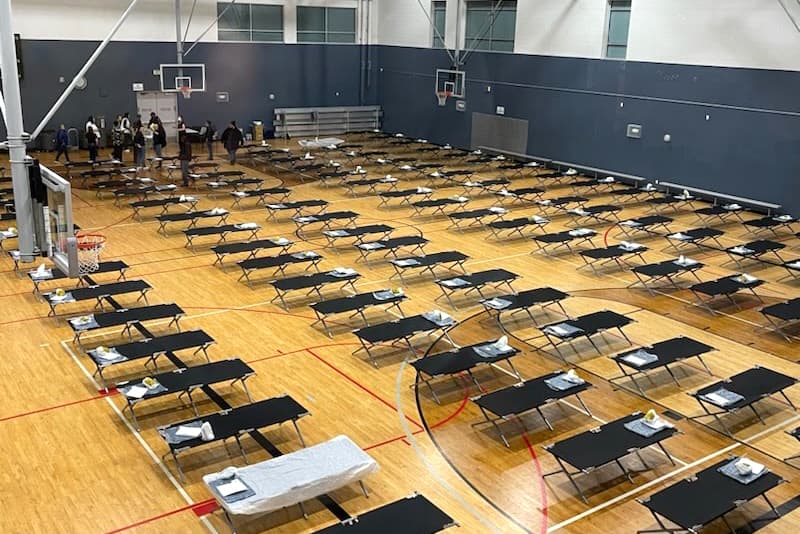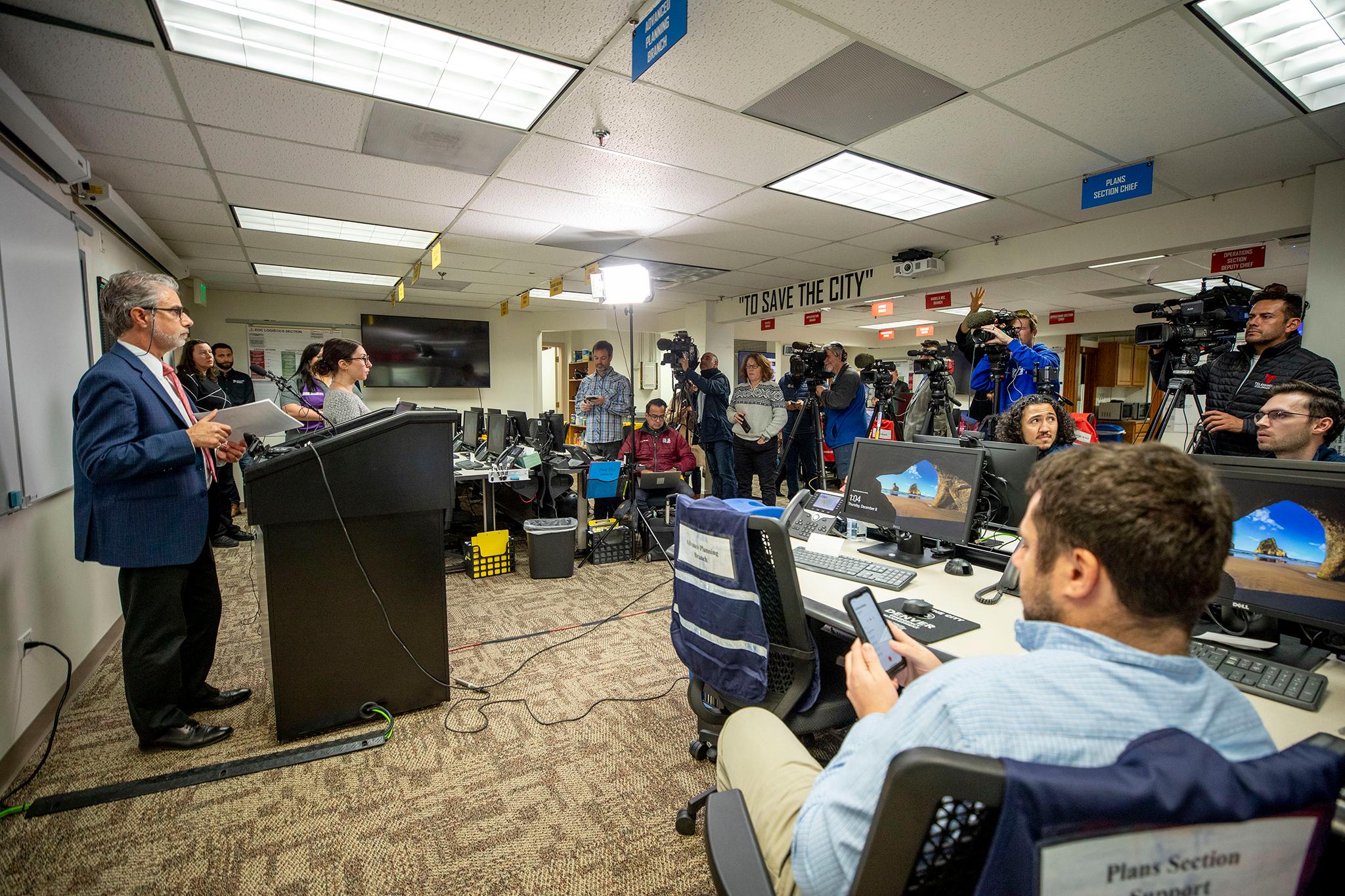Denver officials held their first press conference on Thursday to address the emergency shelter they set up at a rec center to house about 100 people who recently crossed the border and arrived in the city on Monday.
Evan Dreyer, Mayor Michael Hancock's deputy chief of staff, told reporters about 300 migrants arrived in Denver over the last two months. People were mostly going to shelters for people experiencing homelessness, until about 90 people showed up at the Denver Rescue Mission on Monday night.
"When that significant number of folks arrived here, we moved quickly to activate an emergency shelter at a rec center," he said.
Dreyer addressed a major question during the meeting: Did another state or city charter a bus and drop people here to make a political statement?
"This does not appear to be anything that was organized by another government entity to direct people specifically to Denver," he told the room. "We just want to make that clear for you all. Again, we do not think that that was the case, no evidence of that."
Dreyer said some people staying at the emergency shelter told workers that they organized on social media to come to Denver. He did not, however, offer any other details about where or how the trips originated.
He added that the city is currently using money from its general fund to pay for food and labor to support the shelter. Migrants staying there are welcome to leave, and some have left already. It's not uncommon for people entering the U.S. to claim asylum have friends or family to stay with as they pursue their claims. It's also worth noting here that a person must typically be in the U.S. to request asylum, which means their presence in the country is probably not "unauthorized" or "illegal," words typically used to describe people who cross the border.
Dreyer said he expects people to continue to arrive from border towns in the coming weeks.

While the city is treating this like an emergency, local advocates have been trying to ramp up this kind of work for months.
In October, immigrant rights advocates said they were pushing the state of Colorado to apply for money from the Federal Emergency Management Agency, or FEMA, to set up a network of permanent shelters in the state. While they didn't get that concession, Denver's Office of Emergency Management did send 100 cots to an area church to set up a smaller version of that vision.
Jennifer Piper, a longtime advocate with the American Friends Service Committee, released a statement on Thursday that the collective of nonprofits running that "Welcome Center" shelter have been accepting about 50 people from border cities from each month to alleviate huge demand for services there.
"It's time for us to step up to our share, knowing that our partners at the border welcome thousands of people everyday to the United States," her statement said. "We noticed an increase of people arriving in Colorado and received a request from Annunciation House in El Paso, TX to help as well. All of the organizations participated in a similar effort in 2019."
That similar effort she mentioned was in May, 2019, when a busload of asylum seekers spent a short time at a North Capitol Hill church. A father we spoke to then described thousands of people clamoring for services in El Paso and very little resources available to go around.
Piper's statement on Thursday re-upped the call for Colorado to request FEMA money.
"Now is the moment for large nonprofits or the state to pull down FEMA emergency food and shelter funds, available for just this purpose," the email reads. "It is unfortunate that these funds have been available for months and weren't accessed by nonprofits who know how to set up emergency sheltering for the State of Colorado. However, they can and absolutely should be accessed now."
There's a possibility pressure on shelters at the border could increase significantly soon. A judge recently ruled that Title 42, a Trump-era policy that used COVID-19 as pretense to stop asylum seekers from entering the U.S., should be rescinded. There are a lot of people waiting to enter the U.S. from Mexico if that happens. The Biden administration recently appealed to keep it in place.
We've asked Gov. Jared Polis' office if they've considered applying for FEMA money for now. Their response:
"We've been in conversations with them (Denver) and we're assessing how the state can be supportive of local governments and non-profits who already do the work of housing unsheltered people."
We've also asked FEMA if it still has funds available for this purpose; Matt Mueller, executive director of Denver's Office of Emergency Management, said in October that FEMA's fund was close to tapped out.
Mikayla Ortega, spokesperson for Mueller's office, said after the Thursday press conference that the city would like to support shelters for migrants for the long-term in a way that's less frantic than we've seen in the last few days. But planning too far out is tough, she added, since the coming municipal election means Denver's entire executive branch is poised to transition to new leadership.













